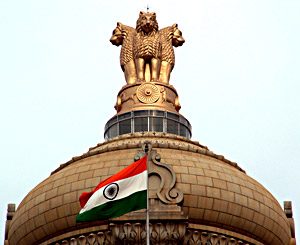Values are the standards on which, we evaluate things. For every situation we don’t have time to ‘test’ the case on ethics theories such as utilitarianism. Values provide time saving short-cut in such situation.
Under New public management (NPM), the concept of public services is fast changing. Bureaucrat has become directly accountable to citizen-customer. He has to respond to moral universe of the citizens. He has discretionary powers, therefore he must be provided with guiding principles to prevent abuse of power. The foundational values provide these guiding principles.
Some important foundational values for civil services are as follows:
- Neutrality
- Anonymity
- Commitment and dedication to public service
- Civil Activism
- Important Commandment for Civil Servants
- Civil Services Accountability
- Ethical Conduct of a Civil Servant
- Responsibility
- Courage
- Discipline
- Integrity
- Humility
- Impartiality
Neutrality
Neutrality is the tendency of not to side in a conflict (physical or ideological), which may not suggest neutral parties do not have a side or are not a side themselves. In colloquial use neutral can be synonymous with unbiased. However, bias is a favoritism for some side,distinct of the tendency to act on that favoritism. Neutrality is distinct (though not exclusive) from apathy, ignorance, indifference, doublethink, equality, agreement, and objectivity. Objectivity suggests siding with the more reasonable position (except journalistic objectivity), where reasonableness is judged by some common basis between the sides, such as logic (thereby avoiding the problem of incommensurability). Neutrality implies tolerance regardless of how disagreeable, deplorable, or unusual a perspective might be.Advocating neutrality is non-neutral.
Sardar Patel had made the following observations in the Constituent Assembly to s upport the continuance of the pre-independence civil service structure:
upport the continuance of the pre-independence civil service structure:
“It needs hardly to be emphasized that an effi cient, discipline and contended civil service assured of its prospects as a result of diligent and honest work, is a sine-quanon of sound administration under democratic regime even more than under an authoritarian rule. Th e service must be above party and we should ensure that political considerations, either in its recruitment or in its discipline and control, are reduced to the minimum if not eliminated altogether.”
Unfortunately, this vision of civil service neutrality no longer holds good. Changes in governments particularly at the state level often lead to wholesale transfer of civil servants. Political neutrality is no longer the accepted norm with many civil servants getting identifi ed, rightly or wrongly, with a particular political dispensation. Th ere is a perception that offi cers have to cultivate and seek patronage from politicians for obtaining suitable positions even in the Union Government. As a result, the civil services in public perception are often seen as increasingly politicized.
As observed by Paul Appleby civil servants should not confuse ‘political neutrality’ with ‘programme neutrality’. At the stage of policy formulation, the role of civil servants is to render free and frank advice which should not be coloured by any political considerations. Once a policy or programme has been approved by the elected government, it is the duty of the civil servant to faithfully and enthusiastically see to its implementation. Not carrying out this task in the right spirit would amount
24.8 41.5 48.3 47.8C117.2 448 288 448 288 448s170.8 0 213.4-11.5c23.5-6.3 42-24.2 48.3-47.8 11.4-42.9 11.4-132.3 11.4-132.3s0-89.4-11.4-132.3zm-317.5 213.5V175.2l142.7 81.2-142.7 81.2z"/> Subscribe on YouTube